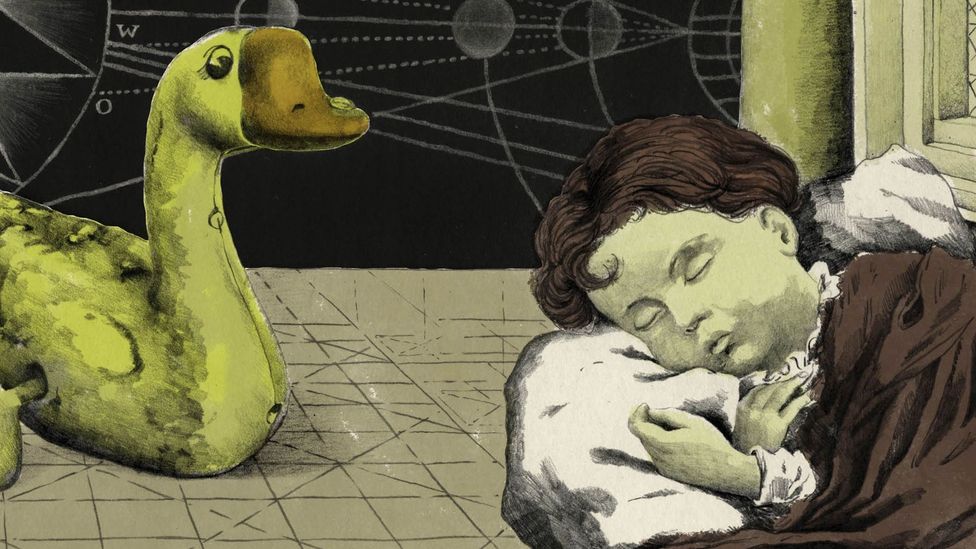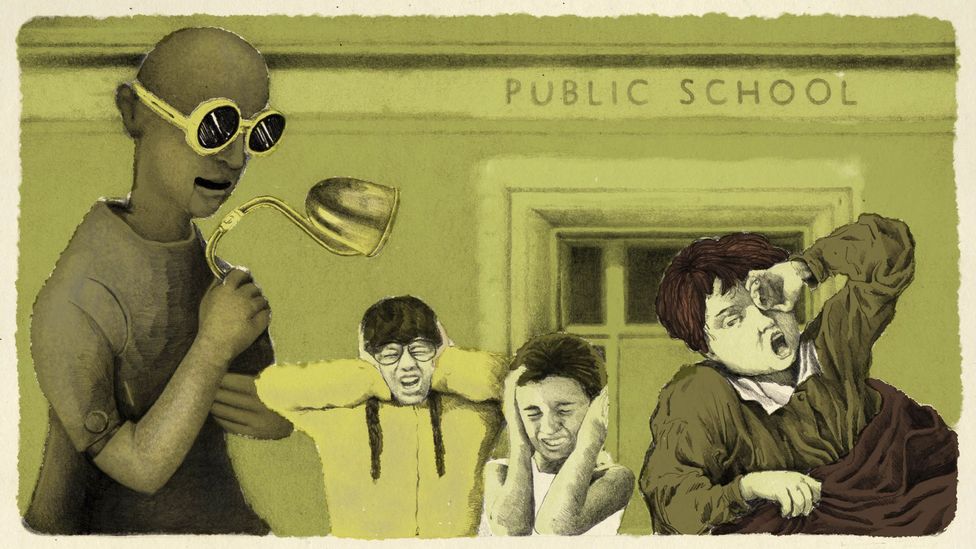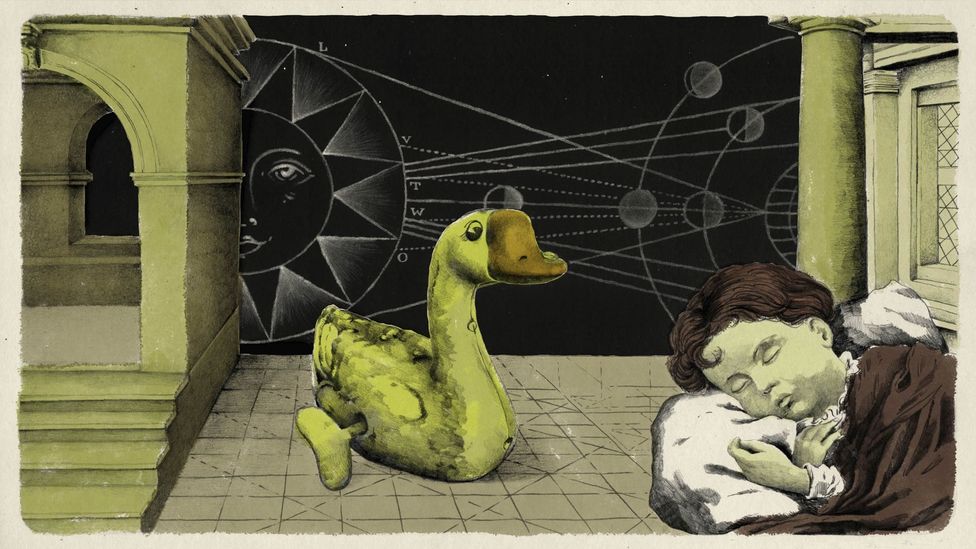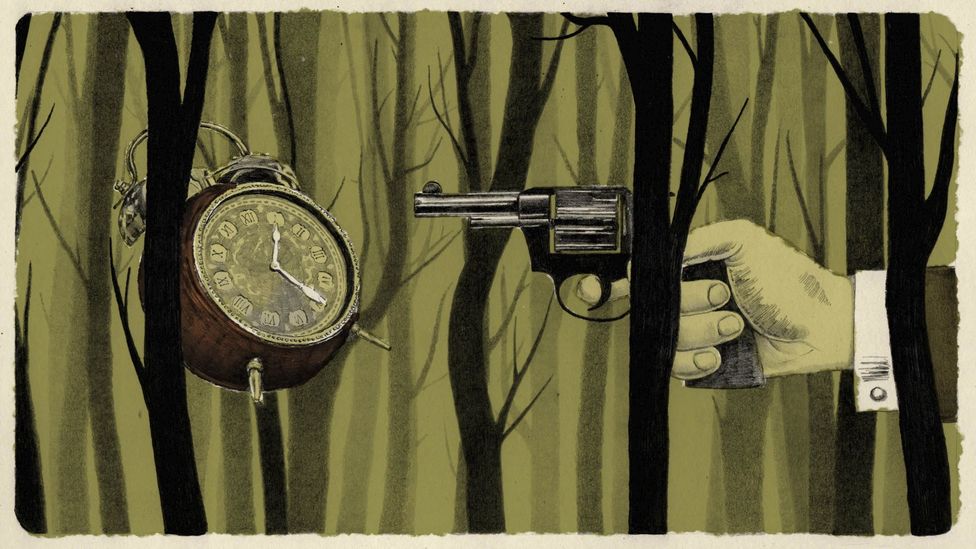Why Can I Not Remember My Dreams
Why can't some people remember their dreams?
(Image credit:
Emmanuel Lafont
)

Many of us struggle to remember the details of our dreams. The reasons lie in the complicated cycles of our sleep.
I
I am standing outside my childhood primary school, near the front gates and the teachers' car park. It is a bright sunny day and I am surrounded by my classmates. There must be more than a hundred of us.
I have a dim feeling that some of my teachers are nearby, but my attention is on two adults, neither of which I recognise. The man I see in lurid detail – from the slick shine of his hair to the golden lenses on his sunglasses. He holds up some kind of device that emits a piercing shriek. I drop to my knees with my hands against my ears. My schoolmates are all doing the same. The man is laughing maniacally.
I had that dream nearly 40 years ago, but I can remember the details as if it were yesterday. Ask me to relate anything from a dream I had earlier this week, however, and I draw a blank. If I have been dreaming – and biology would suggest I most probably have – nothing has lingered long enough to remain in my waking mind.
You might also like:
- How to become a lucid dreamer
- The surprising truth about why we sleep
- A dream-traveller's guide to the sleeping mind
For many of us, dreams are an almost intangible presence. If we're lucky, we can only remember the most fleeting glimpse in the cold light of day; even those of us who can recollect past dreams in astonishing detail can wake some days with almost no memory of what we had dreamed about.
There is little ethereal about the reasons this might be happening, however. Why we have dreams – and whether we can remember them – are both rooted in the biology of our sleeping bodies and subconscious mind.

Our brains go through a rollercoaster while we're asleep (Credit: Emmanuel Lafont)
Sleep is more complicated than we once thought. Rather than being a plateau of unconsciousness bookended by slipping in and out of sleep, our resting brains go through a rollercoaster of mental states, with some parts being full of mental activity.
Dreaming is most closely associated with the sleep state known as Rapid Eye Movement (REM). REM is sometimes known as desychronised sleep, because it can mimic some of the signs of being awake. In REM sleep, the eyes twitch rapidly, there are changes in breathing and circulation, and the body enters a paralysed state known as atonia. It happens in 90-minute-waves during sleep, and it's at this stage that our brains tend to dream.
There is an extra flow of blood to crucial parts of our brain during the REM state: the cortex, which fills our dreams with their content, and the limbic system, which processes our emotional state. While we're in this dream-friendly state of sleep, they fire with furious electrical activity. The frontal lobes, however – which direct our critical faculties – are quiet.
This means we often blindly accept what is happening in this often nonsensical narrative until the time comes to wake up.
The problem is, the more jumbled the imagery, the harder it is for us to grasp hold of. Dreams that have a clearer structure are much easier for us to remember, psychology professor and author Deidre Barrett said in a recent story on Gizmodo.
But there's a chemical component at work which is crucial for making sure those dream images are retained: noradrenaline. Noradrenaline is a hormone that primes the body and mind for action, and our levels of it are naturally lower in deep sleep.
Francesca Siclari, a sleep research doctor at the Lausanne University Hospital, says there are clear definitions between our states of wake and sleep – and that is no accident. "It's probably a good thing that the dream life and the waking life are completely different," she says.
"I think if you remembered every detail like you can do in waking life, you would start to confuse things with what's actually happening in your real life."

Not being able to remember everything about our dreams is important, so that we don't confuse them with reality (Credit: Emmanuel Lafont)
She says that people suffering from sleep disorders, such as narcolepsy, can find it difficult to tell the difference between their waking and sleeping lives, and this can leave them feeling confused and embarrassed. "There are also people who remember their dreams too well, and they actually start exporting those memories into their day."
It is no accident that the dreams we remember the most come from certain periods in our sleep cycle, affected by the chemicals coursing through our sleeping bodies. "Normally we dream most vividly in REM sleep, which is when the levels of noradrenaline are low in the brain," she says.
We may find ourselves dreaming right before we wake up – but our morning routines actually get in the way of remembering the imagery. Often we are startled out of our slumber by an alarm clock, which causes a spike in our noradrenaline levels – thus making it harder for us to hang onto our dreams.
"Someone who asks me the question of why they can't remember their dreams, I say it's because they fall asleep too fast, sleep too soundly and wake up with their alarm clock," says Harvard Medical School sleep researcher Robert Stickgold. "And their response is usually, 'How did you know that?'"
Stickgold says that a lot of people remember their dreams from a sleep onset period, when the mind starts wandering and dreamlike imagery occurs as people drift in and out of sleep – a process called "hypnagogic dreaming". Stickgold says he carried out a study some years ago where students in a lab were awoken shortly after they started entering this state. "Every last one of them remembered dreaming," he says.
"This stage is the first five or 10 minutes after falling asleep. If you just fall fast asleep – the way we all wish we could – you're not going to remember anything from that part of your sleep cycle."

Often we are startled out of our slumber by an alarm clock, which makes it harder for us to remember our dreams (Credit: Emmanuel Lafont)
So what if you actively want to remember your dreams? Obviously, each sleeper is different, but there are some general tips which might help you to hold on to your dreams.
"Dreams are incredibly fragile when we first wake up, and we don't really have an answer for why that is," says Stickgold. "If you're the kind of person who leaps up out of bed and goes about their day, you're not going to remember your dreams. When you sleep in on a Saturday or Sunday morning, that's an excellent time to remember dreams.
"What I tell my students on my courses is, when you wake up, try to lie still – don't even open your eyes. Try to 'float' and at the same time try to remember what was in your dream. What you're doing is you're reviewing dreams as you enter your waking state and you'll remember them just like any other memory."
There are even more surefire ways to remember dreams, Stickgold says. "I tell people to drink three big glasses of water before they go to bed. Not three glasses of beer, because alcohol in an REM suppressant, but water. You'll wake up three or four times in the night and you'll tend to wake up at the end of an REM cycle of sleep which is natural."
And there is another piece of advice offered by some sleep researchers – that simply repeating to yourself as you drift towards sleep that you want to remember your dreams means you wake remembering them. Stickgold laughs. "It actually works. If you do that you really are going to remember more dreams, it's like saying 'There's no place like home'. It really works."
This piece contains original artwork by Emmanuel Lafont, an Argentinian-born visual artist currently working in Spain. He is represented by Yusto/Giner and by 6a Galeria D'art. His website is www.emmanuellafont.com.
Join one million Future fans by liking us on Facebook , or follow us on Twitter or Instagram .
If you liked this story, sign up for the weekly bbc.com features newsletter , called "If You Only Read 6 Things This Week". A handpicked selection of stories from BBC Future, Culture, Capital, and Travel, delivered to your inbox every Friday.
Why Can I Not Remember My Dreams
Source: https://www.bbc.com/future/article/20190516-why-cant-some-people-remember-their-dreams
0 Response to "Why Can I Not Remember My Dreams"
Post a Comment